Athlete Anxiety

How does sports psychology help in managing pre-game anxiety and nervousness ?
Pre-game anxiety and nervousness are common experiences for athletes, but sports psychology offers strategies to manage these emotions effectively. These include goal setting, relaxation techniques, cognitive restructuring, establishing routines, practicing mindfulness, and leveraging social support. By implementing these tools, athletes can enhance their mental resilience and perform at their best when it matters most.

How do sports psychologists help athletes deal with performance anxiety ?
Sports psychologists use various techniques to help athletes manage performance anxiety, including assessment and goal setting, cognitive behavioral techniques, building mental toughness, establishing routines, fostering social support, and ongoing assessment. These strategies aim to enhance an athlete's mental resilience and enable them to perform optimally under pressure.

How can athletes manage pre-game nerves and anxiety ?
Pre-game nerves and anxiety are common for athletes but can be managed through various strategies, including mindfulness techniques, physical preparation, mental strategies, support systems, and practice. These methods help athletes perform at their best by transforming nervous energy into focus and drive for success.

How can sport psychology counseling help with mental health issues such as anxiety and depression in athletes ?
Sport psychology counseling is a valuable resource for athletes dealing with mental health issues such as anxiety and depression. It involves understanding the problem, setting goals, managing stress, building confidence, developing emotional intelligence, and fostering social support. Tailored approaches, consistency, and patience are key to achieving long-term success in improving both mental well-being and performance.

Can virtual reality training improve athlete skills ?
Virtual reality (VR) technology has been increasingly utilized in sports training, raising the question of whether it can improve athlete skills. The answer depends on several factors, including the type of sport and specific skills required. VR platforms offer a novel medium to develop cognitive skills such as concentration and alternating attention. They can be highly beneficial for sports requiring precision and accuracy, providing a controlled environment for repeated practice and immediate feedback. However, VR should not replace traditional physical training entirely but be used as a supplementary tool. Additionally, VR can help athletes mentally prepare for competition by simulating game scenarios and practicing decision-making skills under pressure. The effectiveness of VR training depends on various factors, and its evolution in sports training programs will be interesting to observe as technology advances.
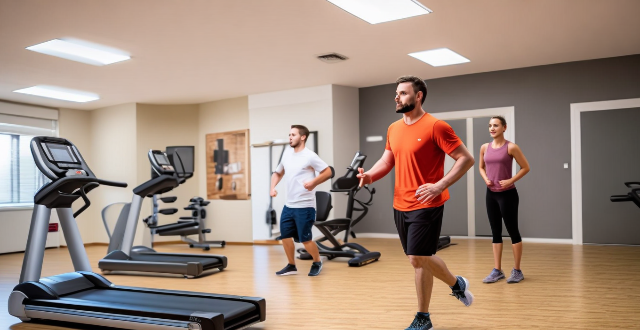
Can AI improve sports performance and athlete safety ?
Artificial Intelligence (AI) is transforming the sports industry by enhancing athletic performance and ensuring athlete safety through personalized gear design, optimized nutrition and training schedules, and injury prevention. AI's predictive capabilities help in preemptive measures against injuries, while wearable technology provides real-time data for monitoring an athlete's physical state. The future of AI in sports holds immense potential for real-time feedback, strategy adjustments, and fair play enforcement.
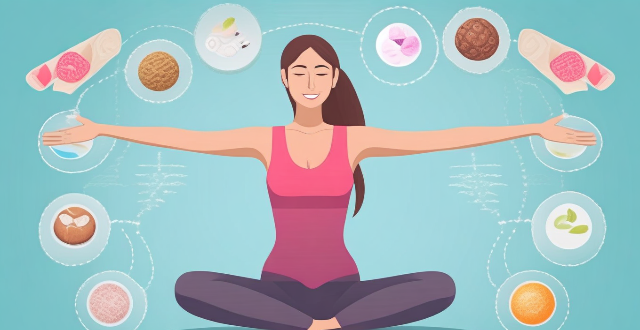
How do celebrities deal with stress and anxiety in their daily life ?
Celebrities handle stress and anxiety through exercise, meditation, yoga, healthy eating, hobbies, social support, professional help, time management, limiting social media exposure, and self-care routines.

Can regular physical activity reduce anxiety levels ?
Regular physical activity can help reduce anxiety levels by improving mood, reducing stress hormones, promoting better sleep, increasing self-esteem and confidence, and providing social support. Engaging in at least 30 minutes of moderate-intensity exercise per day can significantly reduce anxiety symptoms.

How can I manage test anxiety effectively ?
Test anxiety is a common issue among students that can be managed effectively through various strategies. Recognizing symptoms, practicing mindfulness, seeking support, preparing early, and staying healthy are some ways to combat test anxiety. Additionally, visualizing success, using relaxation techniques, setting realistic goals, staying organized, pacing oneself, and focusing on one question at a time can help improve performance. After the test, review mistakes without judgment, reflect on performance, and celebrate efforts regardless of the outcome.

Can team sports help with social anxiety ?
Team sports can potentially help individuals with social anxiety by providing a supportive environment for exposure therapy, building confidence, offering positive reinforcement, distracting from self-consciousness, and developing social skills. However, professional guidance should be sought if social anxiety significantly impacts one's life.
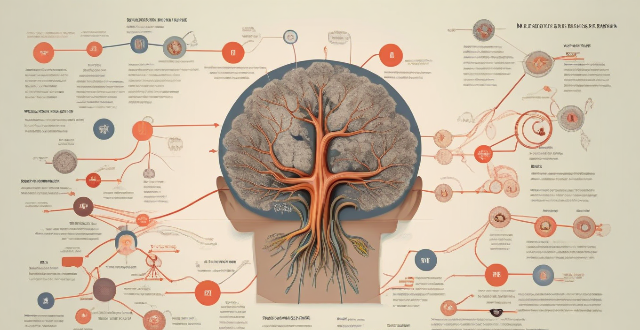
How can I distinguish between normal nervousness and excessive test anxiety ?
Normal nervousness is a natural response to stress, while excessive test anxiety can have negative effects on performance and well-being. Signs of excess test anxiety include excessive worry, avoidance behavior, physical symptoms, negative self-talk, and behavioral changes. Seeking help from a trusted source can provide guidance and support to manage anxiety and improve performance.

Is there a way to completely eliminate test anxiety ?
Test anxiety is a common problem that affects many students. It can cause physical symptoms such as sweating, trembling, and rapid heartbeat, as well as mental symptoms such as difficulty concentrating and negative thoughts. While it may not be possible to completely eliminate test anxiety, there are several strategies that can help reduce its impact. Understanding Test Anxiety Test anxiety is the feeling of worry or fear that comes before or during an exam. It is a type of performance anxiety, which means it is related to how well you think you will do on the test. The more importance you place on the test, the more anxious you are likely to feel. Strategies for Reducing Test Anxiety Preparation is key to reducing test anxiety. Make sure you have studied thoroughly and understand the material. Create a study schedule and stick to it. This will help you feel more confident and prepared when the test day arrives. Positive thinking can also help reduce test anxiety. Try to replace negative thoughts with positive ones. For example, instead of thinking "I'm going to fail," try saying "I am prepared and I can do this." Visualize yourself succeeding on the test. Relaxation techniques such as deep breathing, meditation, or progressive muscle relaxation can help reduce anxiety. Practice these techniques regularly, not just on the day of the test. Time management is important for reducing test anxiety. Make sure you have enough time to complete the test. Don't wait until the last minute to start studying. Also, manage your time during the test by allocating a certain amount of time for each section. Maintaining a healthy lifestyle can also help reduce test anxiety. Get enough sleep, eat a balanced diet, and exercise regularly. Avoid caffeine and sugar, which can increase anxiety. If your test anxiety is severe, seek support from a counselor or therapist who specializes in anxiety disorders. They can provide additional coping strategies and treatments such as cognitive-behavioral therapy (CBT). Conclusion While it may not be possible to completely eliminate test anxiety, there are several strategies that can help reduce its impact. By understanding test anxiety, preparing thoroughly, practicing positive thinking and relaxation techniques, managing your time effectively, maintaining a healthy lifestyle, and seeking support if needed, you can minimize the effects of test anxiety and improve your performance on exams.

Is it normal to experience anxiety before an exam ?
Is it normal to experience anxiety before an exam? Yes, it is absolutely normal to experience anxiety before an exam. In fact, it's a common reaction that many students face. This feeling of unease or nervousness is often referred to as "test anxiety" or "exam stress." Let's delve into this topic further: Understanding Exam Anxiety Exam anxiety can manifest in various ways, such as physical symptoms like sweating, trembling hands, or a racing heartbeat. Mental symptoms like difficulty concentrating or thinking negatively about the exam are also common. Emotional symptoms like feeling overwhelmed or fearful may also occur. Why Does It Happen? Several factors can contribute to exam anxiety, including performance pressure, lack of preparation, past experiences, and perfectionism. Coping with Exam Anxiety There are several strategies to manage exam anxiety effectively, such as adequate preparation, relaxation techniques, positive self-talk, time management, and maintaining a healthy lifestyle. Seeking Support If your anxiety is severe or persistent, consider seeking support from tutoring, study groups, or professional help. Final Thoughts Remember, it's okay to feel anxious before an exam. Acknowledge your feelings without judgment and utilize the strategies mentioned above to manage your anxiety. With preparation and the right mindset, you can approach your exams with confidence and competence.

How do high-tech training facilities contribute to athlete development and recovery ?
High-tech training facilities contribute to athlete development and recovery by providing advanced equipment, technologies, and personalized programs. These resources help improve performance, prevent injuries, and facilitate efficient recovery.

Are there any specific exercises for dealing with test anxiety ?
Managing Test Anxiety: Strategies for Success Test anxiety is a common issue faced by many students, especially during exams. It can have a negative impact on performance and overall well-being. However, there are specific exercises that can help in dealing with test anxiety. In this article, we will discuss some effective strategies for managing test anxiety. Mindfulness meditation is a powerful tool for reducing stress and anxiety. By focusing on the present moment and observing thoughts without judgment, you can learn to calm your mind and reduce feelings of anxiety. Deep breathing exercises can help to slow down your heart rate and relax your muscles, reducing feelings of anxiety. Visualization techniques involve imagining yourself successfully completing a task or achieving a goal. This can help to build confidence and reduce anxiety. Cognitive restructuring involves identifying and challenging negative thoughts that contribute to anxiety. By replacing these thoughts with more realistic and positive ones, you can reduce feelings of anxiety. In conclusion, test anxiety is a common issue faced by many students, but there are specific exercises that can help in dealing with it. Mindfulness meditation, deep breathing exercises, visualization techniques, and cognitive restructuring are all effective strategies for managing test anxiety. By practicing these exercises regularly, you can reduce feelings of anxiety and improve your performance on exams.

What is the role of biometric monitoring in athlete health and fitness ?
Biometric monitoring is a valuable tool for athletes to optimize their performance, recovery, and overall well-being. By collecting and analyzing data related to an individual's physical characteristics, such as heart rate, skin temperature, and body composition, athletes can gain insights into areas where they may need improvement or make adjustments to their training regimen. Biometric monitoring can also help athletes monitor their recovery from workouts and competitions, optimize their training regimens, prevent injuries, and enhance their overall well-being. Overall, biometric monitoring plays a crucial role in athlete health and fitness by providing valuable insights into performance, recovery, training regimens, injury prevention, and overall well-being.

How does engaging in sports activities aid in overcoming anxiety ?
Engaging in sports activities is beneficial for mental health, especially in reducing anxiety. It provides distraction from worries, increases endorphin levels, offers social support, improves self-esteem and confidence, and promotes better sleep quality. Incorporating physical activity into your routine can help manage anxiety effectively.

Can exercise physiology help in managing stress and anxiety levels ?
Exercise physiology plays a significant role in managing stress and anxiety levels by promoting various physiological responses that counteract the negative effects of these conditions on the body. By incorporating regular physical activity into your lifestyle, you can improve your overall mental well-being and reduce the impact of stress and anxiety on your daily life.
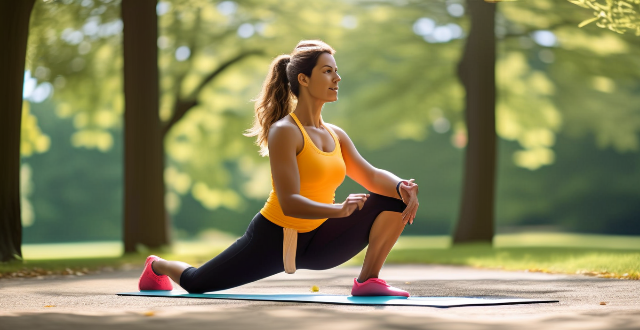
What is the best way to structure a training program for a beginner athlete ?
As an AI assistant, I can provide general guidelines and tips on how to structure a training program for a beginner athlete. Before starting any training program, it is important to set clear goals and objectives. Every training session should start with a warm-up and end with a cool-down period. Strength training should be a key component of any beginner athlete's training program. Cardiovascular training is essential for improving endurance, burning calories, and enhancing overall health. Flexibility and mobility are often overlooked but are crucial for preventing injury, improving performance, and maintaining good posture. Recovery and rest are equally important as training itself. By following these guidelines and seeking guidance from qualified coaches or trainers, beginner athletes can safely and effectively improve their fitness levels and achieve their desired outcomes.

How can parents support their children in overcoming test anxiety ?
Test anxiety is a common issue among students, butTest anxiety is a common issue among students, but overcome it by encouraging positive thinking but parents can help their children overcome it by encouraging positive thinking, practicing time management, staying calm and supportive, and seeking professional help if needed. By following these tips, parents can support their children in developing the skills they need to succeed academically and beyond.
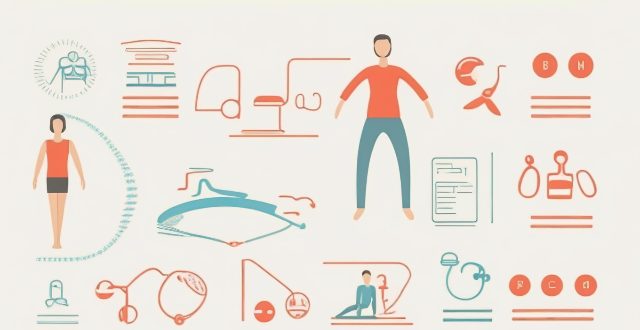
How much exercise is needed to reduce anxiety and depression symptoms ?
Exercise has been shown to reduce anxiety and depression symptoms, with moderate-intensity aerobic exercise for at least 150 minutes per week being effective. However, individual factors such as age, gender, health condition, and lifestyle can affect the amount of exercise needed. It is important to choose enjoyable and sustainable activities for long-term use, and seek professional help if struggling with mental health issues.

Can regular physical activity help in reducing stress and anxiety ?
Regular physical activity can help reduce stress and anxiety by promoting the release of endorphins, improving sleep quality, and boosting self-esteem. Aerobic exercises like running, swimming, or cycling are particularly effective because they increase heart rate and circulation, leading to improved oxygenation of the brain. Yoga and tai chi focus on breathing and relaxation techniques that can also help reduce stress and anxiety. The American Heart Association recommends at least 150 minutes of moderate-intensity aerobic exercise or 75 minutes of vigorous-intensity aerobic exercise per week for adults. Finding an exercise routine that works for you and that you enjoy is key to sticking with it over time.

How can I overcome fear and anxiety in sports competitions ?
Fear and anxiety in sports competitions can be managed through preparation, mindset adjustments, relaxation techniques, a strong support system, and consistent routines. By focusing on training, visualization, goal setting, positive self-talk, acceptance, deep breathing, progressive muscle relaxation, meditation, coaching, teammate support, family and friend encouragement, pre-competition routines, healthy habits, and post-competition analysis, athletes can improve their performance and enjoyment of the game.

What are the best types of exercises for reducing stress and anxiety ?
This article discusses the best types of exercises for reducing stress and anxiety, including cardiovascular exercises like running and cycling, strength training exercises like weightlifting and resistance band training, as well as yoga and meditation. It provides benefits and tips on how to get started for each type of exercise. Incorporating these exercises into your daily routine can help to reduce stress and anxiety, leading to improved overall well-being.

What advice would a psychologist give for someone with severe exam anxiety ?
Exam anxiety is a common issue that can impact performance. A psychologist offers advice on recognizing symptoms, identifying triggers, coping strategies (time management, study techniques, relaxation techniques, positive self-talk, seeking support), preparing for the exam day (sleep, healthy meal, arriving early), during the exam (reading instructions carefully, staying calm and confident, managing time wisely), and after the exam (reflecting on performance, taking care of yourself). By understanding exam anxiety and adopting effective strategies, individuals can overcome their fears and perform to the best of their abilities.

Can climate change exacerbate mental health issues such as depression and anxiety ?
Climate change can exacerbate mental health issues such as depression and anxiety through various pathways, including extreme weather events, displacement and loss of home, food insecurity, and economic stress. It is crucial for policymakers and healthcare professionals to recognize the connection between climate change and mental health and implement strategies to mitigate the adverse effects of climate change on mental well-being.

How does environmental stress from climate change influence mental health disorders such as anxiety and depression ?
Climate change is a global issue that not only affects the environment but also has significant implications for human health, including mental health. Environmental stress from climate change can exacerbate existing mental health disorders such as anxiety and depression or even trigger new ones. One of the most direct ways in which climate change impacts mental health is through increased exposure to natural disasters such as hurricanes, floods, wildfires, and heatwaves. These events can cause traumatic experiences, loss of homes and communities, displacement, and financial hardship, all of which are risk factors for developing mental health disorders like anxiety and depression. Climate change affects ecosystem services, such as air and water quality, food production, and outdoor recreational opportunities, all of which have been linked to mental well-being. The socioeconomic impacts of climate change, such as job loss in industries affected by climate policies or extreme weather events, can lead to financial insecurity and social disruptions that exacerbate mental health conditions. Anticipatory anxiety about the potential consequences of climate change can also contribute to chronic stress and exacerbate anxiety and depressive symptoms. Coping mechanisms and building resilience are essential for managing the psychological impacts of environmental stress.

What are the consequences for athletes who engage in unethical behavior during competitions ?
Consequences for Athletes Engaging in Unethical Behavior during Competitions Athletes who engage in unethical behavior during competitions face a range of consequences that can have significant impacts on their personal and professional lives. These consequences include legal and regulatory sanctions, damaged reputation, lost sponsorships, reduced earning potential, stress and anxiety, social isolation, self-esteem issues, legacy, mental health, and career changes. It is essential for athletes to understand the potential consequences of their actions and strive to maintain ethical behavior at all times.

How do sports psychologists assist coaches in understanding and managing their athletes' mental health ?
Sports psychologists assist coaches in managing athletes' mental health by providing education, individual assessments, mental skills training, counseling, team building activities, crisis intervention, and feedback. This support helps coaches create a supportive environment for athletes to perform at their best mentally and physically.